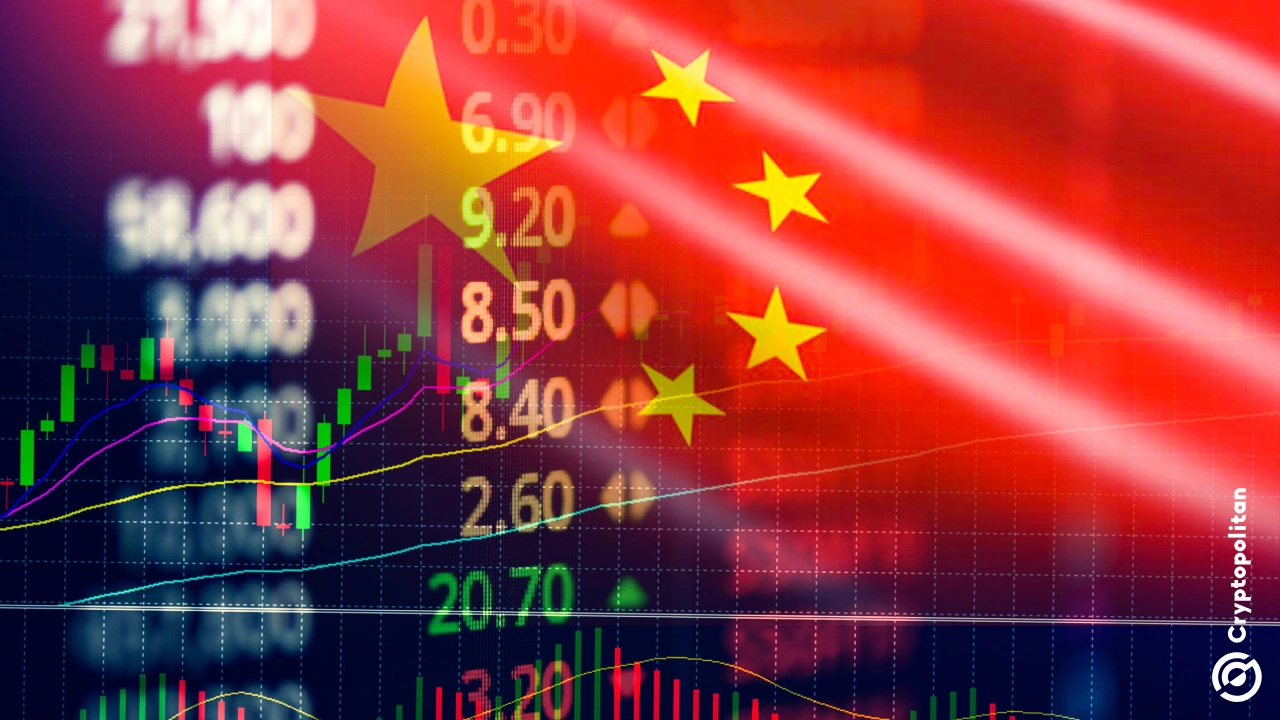China’s Margin Debt Soars to Record $322B as Regulators Sound Alarm

Chinese investors just pushed margin debt to unprecedented heights—racking up a staggering $322 billion in leveraged positions while regulators flash warning signs.
The Great Wall of Risk
That mountain of borrowed cash fuels everything from tech stocks to property plays. But it's making financial watchdogs nervous—they're seeing red flags in every rally.
Regulators aren't just watching from the sidelines. They're tightening screws on brokerages, raising margin requirements, and whispering about 'systemic risks' in closed-door meetings.
Meanwhile, retail traders keep chasing yields in an economy where traditional investments barely beat inflation—because nothing says 'financial responsibility' like leveraged bets in a regulated casino.
This won't end quietly. Either markets defy gravity a while longer, or we get a margin call heard round the world.
Tech stocks no longer a safe bet
Speculation around big tech names has cooled quickly, as per Reuters. Cambricon, a stock Jiang owns, sank 15% on Thursday after its market value doubled to 668 billion yuan in August.
The AI chipmaker, often compared with Nvidia, has been a magnet for Leveraged punters; exchange figures indicate that more than 10 billion yuan of borrowed funds piled into the name.
The build-up amplifies downside risk, said Steven Leung, executive director of institutional sales at UOB Kay Hian in Hong Kong. The record level of margin finance, he said, leaves the market more exposed. He added, “If there’s any measure trying to cool down the market, these people, especially those using margin financing, have to get out first.”
James Liu, a retail investor in Sichuan, said he taps consumer credit with rates NEAR 3%, below the 4%–5% typically charged for margin at brokerages.
While banks prohibit directing such funds into equities, Liu said he moves money through several accounts and sees little chance of being flagged.
Caution ahead despite market support
Banks are pushing back. China Minsheng Bank, Hekou Rural Commercial Bank, and Wenshan City Commercial Bank have recently warned customers not to use credit card loans for investing.
With consumption still weak, “less creditworthy consumers remain as active borrowers, leading to higher asset risks for lenders,” ratings firm Moody’s wrote.
Policy makers continue to back the market but want to avoid excess.
“The government has made it very clear that they are supportive of the equity market,” said Eugene Hsiao, head of China equity strategy at Macquarie Capital. “That said, policymakers are wary of boom-bust cycles similar to the margin-trading bubble in 2014-2015,” he said, expecting the government to “rein in excessive speculative flows.”
Get up to $30,050 in trading rewards when you join Bybit today

